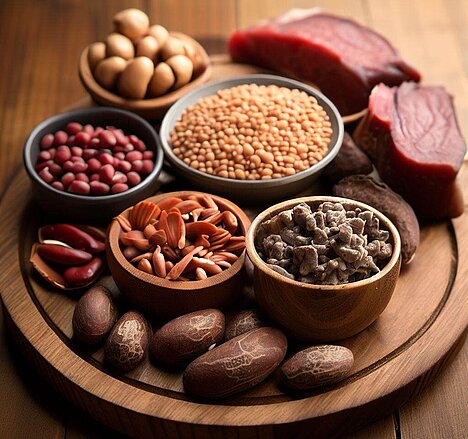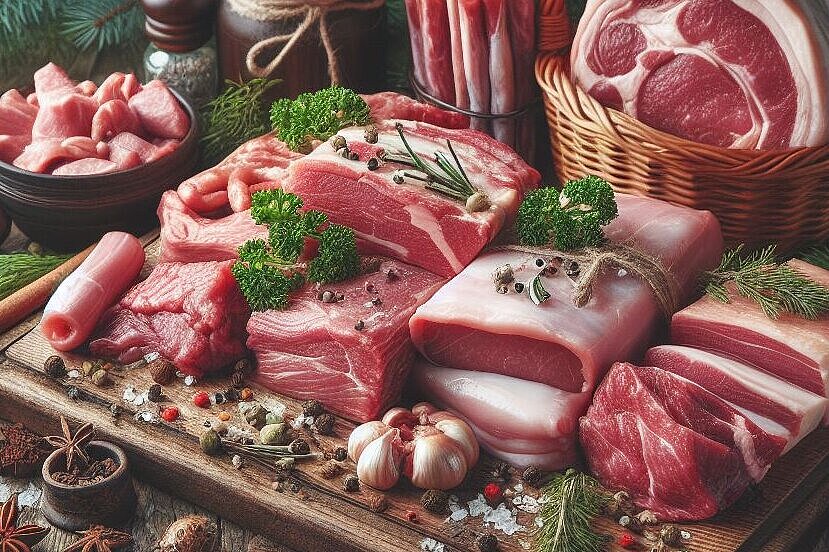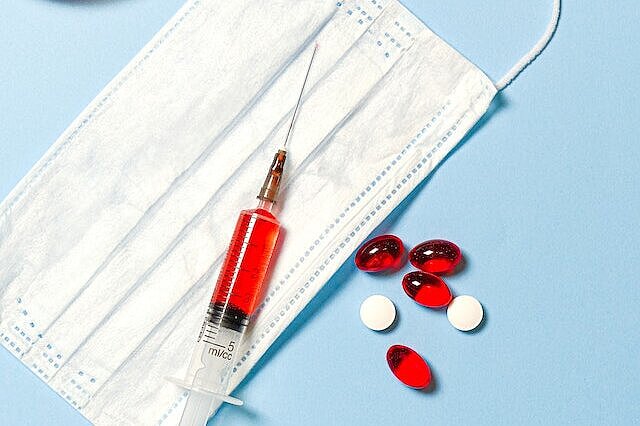Iron

What is iron and what does it do in your dog's body?
Iron is a chemical element that occurs naturally. It is an important component of hemoglobin, the red blood pigment. Hemoglobin binds oxygen in the lungs and transports it to cells throughout the body. Without sufficient iron, the dog cannot absorb enough oxygen and quickly becomes tired and weak.
Iron is also involved in the function of enzymes that are important for various metabolic processes. For example, iron helps to produce energy from fats and carbohydrates. Iron also supports your dog's immune system and protects it from infections.
How much iron does your dog need?
The daily iron requirement depends on various factors such as your dog's age, weight, state of health and activity level. A general recommendation is around 10 mg per kilogram of body weight per day. This means, for example, that a 20 kg dog needs about 200 mg of iron per day.
Most dogs meet their iron requirements through a balanced diet of high-quality food or fresh food. However, there are some situations that can lead to an increased iron requirement or a reduced iron intake. These include
- Blood loss due to injury or parasite infestation
- Chronic illnesses such as kidney or liver disease
- exclusive feeding with dry food
- Pregnancy and lactation of the bitch
In these cases, iron deficiency can occur, which has a negative effect on the dog's health.
How do I recognize iron deficiency in my dog?
Iron deficiency leads to anemia, which can manifest itself through various symptoms. These include
- Pale mucous membranes (mouth, eyelids)
- Reduced performance and stamina
- Accelerated breathing and heart rate
- Loss of appetite and weight loss
- Dull coat
- Susceptibility to infections
If you notice one or more of these signs in your dog, you should consult a vet. They can determine whether your dog is suffering from an iron deficiency by carrying out a blood test. They can also determine the cause of the deficiency and recommend suitable treatment.
How can I treat iron deficiency in my dog?
The treatment of iron deficiency depends on the severity of the deficiency. In mild cases, it is often sufficient to change the dog's diet or provide it with iron supplements. Care should be taken to ensure that the supplement also contains vitamin C, as this promotes iron absorption.
In more severe cases, iron infusions or blood transfusions may be necessary. However, this should only be done under veterinary supervision.
Which foods are rich in iron and good for dogs?
To prevent or treat an iron deficiency, you can give your dog iron-rich food. You should make sure that the iron is readily available and is not inhibited by other substances. The best sources of iron for dogs are
- Red meat such as beef, lamb or venison
- Offal, e.g. liver, heart or kidneys
- Fish such as sardines, mackerel or salmon
- eggs
- Green leafy vegetables such as spinach, chard or parsley
- Legumes such as lentils, peas or beans
You can give your dog these foods raw or cooked. You can also mix them with a high-quality dry or wet food. However, make sure that you do not exceed the total amount of food and do not upset the nutrient balance.
Iron is a vital mineral for your dog. It ensures that the cells are supplied with oxygen and that enzymes and the immune system function properly. Iron deficiency can lead to anemia and other health problems. To avoid this, you should provide your dog with a balanced diet of iron-rich foods. If iron deficiency is suspected, a vet should be consulted and appropriate treatment initiated.
If you notice any signs of hypersensitivity or poisoning in your dog, you should see your vet immediately. We are not a substitute for a vet, but we try to be as accurate as possible. Every dog reacts differently and we recommend you get a second opinion or consult your vet if in doubt.
Stay healthy and take good care of your four-legged friend!😊
Similar to Iron
Meat is the collective term for the muscle tissue of animals that is used as food. Meat can come from different animal species, such as beef, pork, poultry, lamb or game. Depending on the animal...
Blood plasma is the liquid component of blood that remains after the red blood cells have been removed. It contains water, proteins, electrolytes and other nutrients. Blood meal is the dried and...
Hemoglobin is a protein found in red blood cells. It consists of four subunits, each of which contains an iron atom. This iron atom can bind oxygen and release it again. This enables haemoglobin to...
Iodine is a chemical element that only occurs in nature in bound form. It is a mineral, or more precisely a trace element. This means that it is only present in the body in very small quantities,...



